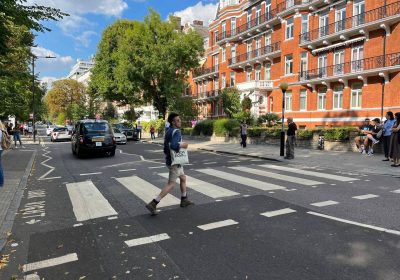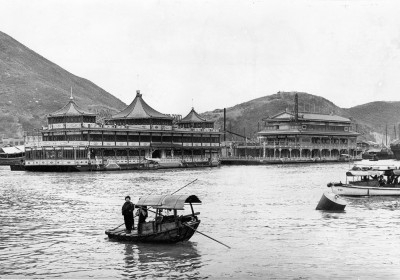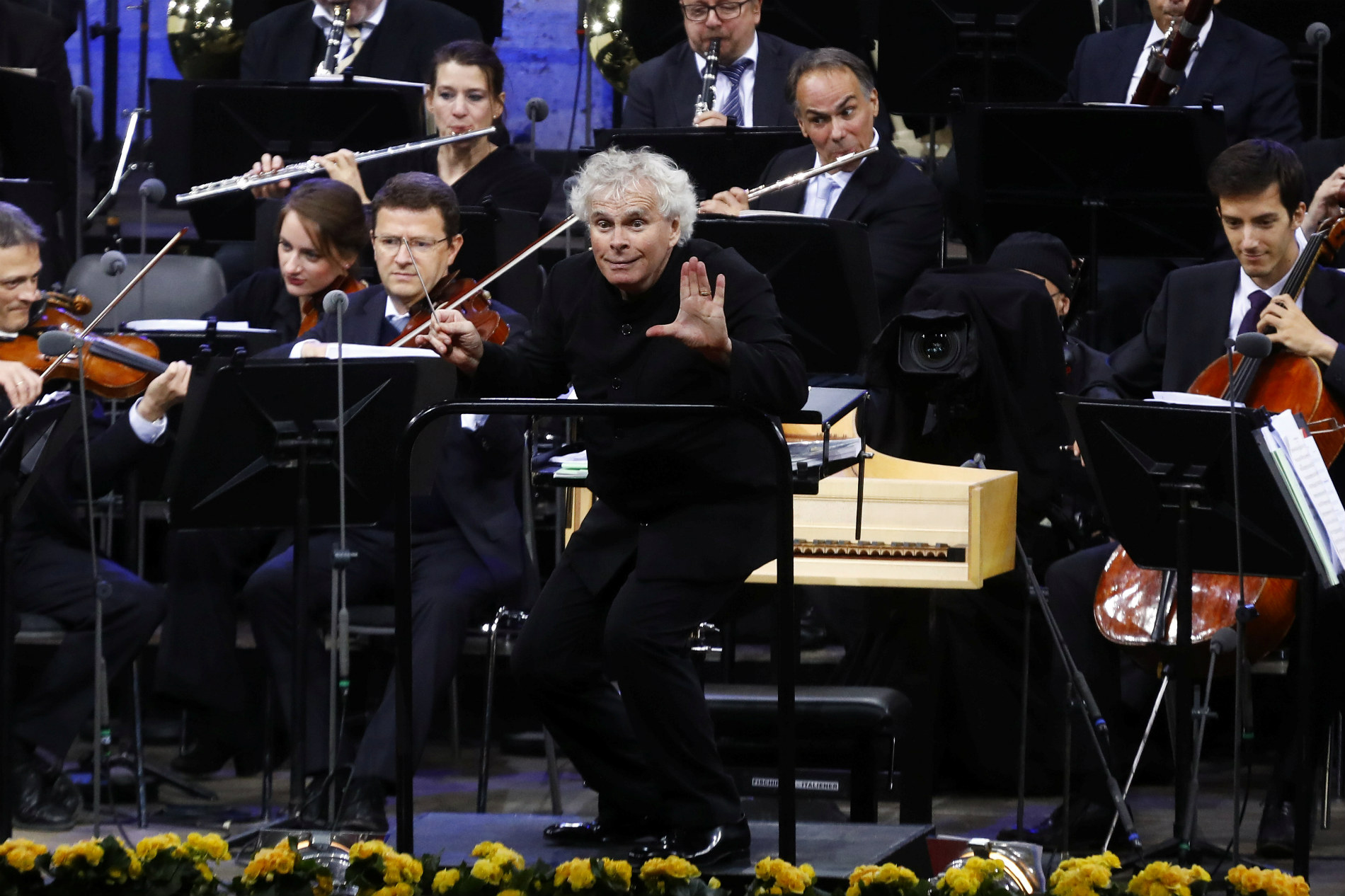
(翻譯內容以英文版本為準)
柏林愛樂樂團一直被公認為世上最優秀的樂團之一。從 1882 年成立至今,樂團只委任過 10 名首席指揮,他們都是當時得令、備受尊重的音樂家,當中包括備受爭議的福特萬格勒、具獨裁指揮風格的卡拉揚以及和藹親切的阿巴度。西蒙.歷圖爵士於 2002 年被任命為樂團的首席指揮兼藝術總監,而在本年 6 月下旬,在門票被搶購一空、廣受好評的一系列音樂會後,他在柏林的任期亦圓滿結束。今後,歷圖爵士將在英國專注於同樣輝煌的工作 —— 擔任倫敦交響樂團的音樂總監。
我出席了歷圖爵士最後一次以柏林愛樂樂團首席指揮身份,在著名的柏林愛樂廳舉行的音樂會(而歷圖爵士與樂團正式最後一場音樂會,則在 6 月 24 日於柏林森林劇場舉行)。由於柏林愛樂樂團音樂領袖更替,是一個極罕見的時刻,是次音樂會的門票於數個月前已經售罄。音樂會開始前,場外路上擠滿了數以千計、來自世界各地的古典音樂愛好者,他們期望有人會轉售門票,當中一些人腰上甚至繫著一塊紙板,上面寫有一個他們願意為門票支付、異常高昂的價錢。我在遠處觀察,很高興發現不但沒有兜售的情況,亦沒有觀眾為了賺取可觀的利潤而轉售門票。畢竟,出席柏林愛樂樂團首席指揮卸任前的最後一場音樂會,被公認為神聖的歷史時刻,這種可遇不可求的音樂會,最近 3 次已分別是 2002 年、1989 年及 1954 年的事。
歷圖爵士在 1987 年首次指揮柏林愛樂樂團的時候(那時,他的頭髮幾乎是全黑,雖然已留著像愛因斯坦般標誌性的髮型),音樂會中只有一首樂曲,就是極為龐大和發人深省的「馬勒第 6 交響曲」(別名「悲劇」)。經歷逾 30 年,歷圖爵士亦以同一首交響樂標誌他柏林時代的結束。這兩場音樂會有任何差異嗎?在 1994 年才出生的我不會知道,但是歷圖爵士在舞台上表現出的激情、活力、熱情和魄力顯然沒有反映出他 63 歲的高齡。就像我在影片中看見 80 年代的歷圖爵士,他跳躍和舞動,適當地使演出的氣氛活躍起來,並以他具感染力的熱情,帶領著樂團一眾的音樂家。
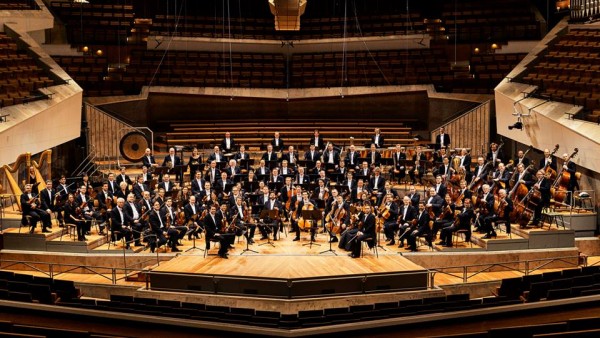
在音樂會中,我有幸坐在一對 50 多歲的德國夫婦旁邊,他們當時還是西柏林的大學生,曾在 1987 年出席歷圖爵士的首演音樂會。他們注意到 31 年前在該音樂會上演出的一些音樂家仍在樂團中演奏,當中包括樂團首席,亦對歷圖爵士在演繹樂曲上的轉變感到驚訝。他們在 1987 年冷戰時期分裂的柏林和在 2018 年自由民主盛行的現代社會,聆聽此悲慘交響曲時的情緒截然不同。在世界無容置疑將會遭改變、動盪和革命蹂躪的前提下,我只能希望歷圖爵士在 30 年後會回歸柏林,再次演出馬勒的第 6 號交響曲,讓我有機會在完全不同的政治及環境氣氛下欣賞這首交響曲。
音樂會本身其實並沒有甚麼驚喜,因為一如以往,柏林愛樂樂團的演出是絕對完美的。老實說,即使把一打風車放到樂團前,他們的演奏恐怕依然如此精彩。柏林愛樂樂團在演奏「馬勒第 6 交響曲」上時,由整體到每一個細節,都呈現近乎心靈感應一樣的控制。這場優秀且精心的演出,源於樂團的音樂家對樂譜及彼此演奏風格的熟悉。歷圖爵士透過強調交響樂寬敞的結構,掌控音階高低起伏,所維持的平衡無可挑剔。樂團在這種領導下表現令人印象深刻,把交響曲中澎湃的樂句、激昂的音符及雄偉的風格演奏得淋漓盡致。
有別於某些亞洲管弦樂團為了在首席指揮的最後音樂會錦上添花,著重隆重的典禮和管弦樂團委員會成員、政治家的致辭;柏林愛樂樂團及柏林公眾只是簡單、莊嚴、動人地歡送歷圖爵士。在音樂會結束後,所有觀眾(真的是所有)起立為歷圖爵士鼓掌達 15 分鐘,歡呼聲和喝采聲響遍整個柏林愛樂廳。16 年前當歷圖爵士接任時,柏林公眾並非立即雀躍地歡迎及接受他的演奏風格;歷圖爵士對現代、新音樂的喜愛,尤其不受傳統主義者欣賞。然而,16 年後,基於他極大的熱情、對古典和現代音樂的奉獻,基於他承諾以音樂改變世界、強化柏林為世界音樂之都的能力、他的創新教育項目,以及他鞏固柏林愛樂樂團為世界最佳樂團的功勞,我很高興看見柏林人終於對這個具革命性和有遠見的英國著名指揮家予以認同及肯定。
在震耳欲聾的掌聲中,歷圖爵士發表了一個十秒的簡短演說,並以德語「Danke für alles(感謝這一切)」作結。
大部分的觀眾同樣以口形說出「Danke für alles」以作回應。
感謝這一切,歷圖爵士。
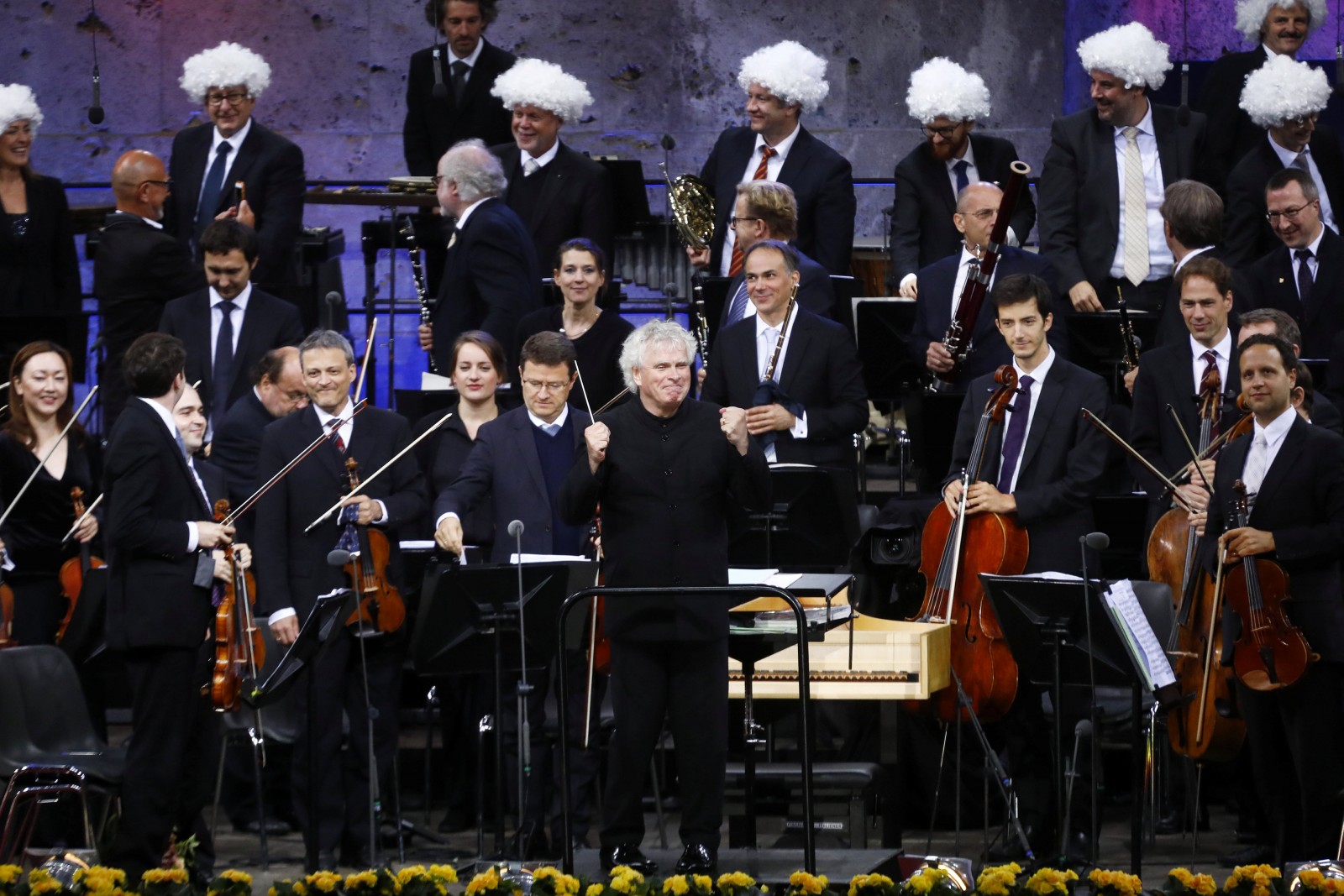
As the Crow Flies: Sir Simon Rattle’s Farewell with the Berlin Philharmonic
The Berlin Philharmonic has always been considered as one of the very best orchestras in the world. Since it was founded in 1882, it has only had ten Chief Conductors, who were all the most respected and remarkable musicians of their generations, including the controversial Wilhelm Furtwängler, the all-controlling Herbert von Karajan and the benign Claudio Abbado. Their most recent Chief Conductor (and Artistic Director), Sir Simon Rattle, was appointed to the position in 2002 and a month ago, in June 2018, after a series of widely-acclaimed sold-out concerts, Sir Simon concluded his tenure in Berlin to focus on his equally illustrious job in the United Kingdom – as the Music Director of the London Symphony Orchestra.
I was at Sir Simon’s final concert as the Chief Conductor of the Berlin Philharmonic at the Berliner Philharmonie, one of the most prestigious concert halls in the world (Sir Simon’s official final concert with the orchestra was held several days afterwards at the Waldbühne amphitheatre). As the change of musical leadership at the Berlin Philharmonic was an exceptionally rare occasion, this concert was sold out months in advance. Before the concert began, hundreds and hundreds of classical music aficionados from all around the world swamped the roads outside of the Philharmonie waiting for the appearance of ticket touts. Some even had cardboard around their waists suggesting the ridiculous sum of money they were willing to pay for a ticket. I was observing from afar and was delighted to find out that not only were there no ticket touts, none of the patrons with tickets resold their tickets for a handsome profit. After all, the opportunity to attend a Berlin Philharmonic Chief Conductor’s final concert – widely seen as a divine occasion – would not come around frequently. The three previous occasions of this magnitude were in 2002, 1989 and 1954, respectively.
When Sir Simon made his debut with the Berlin Philharmonic in 1987 (back then, his hair was mostly black, although he already had his notable Einstein-like hairstyle), only one piece of music was on the programme: the monumental and introspective Mahler’s Sixth Symphony (nicknamed Tragic). More than 30 years on, the music has come full circle. Sir Simon also marked the end of his Berlin era with the very same symphony. Were there any differences between these two performances? I wouldn’t know – I wasn’t born until 1994. But Sir Simon’s passion, energy, intensity and vigor, as demonstrated on stage, certainly did not reflect his age of 63. Just like the Sir Simon I saw on video in the 1980s, he was jumping, dancing and suitably animated on the rostrum, leading the musicians with his infectious enthusiasm and love for music.
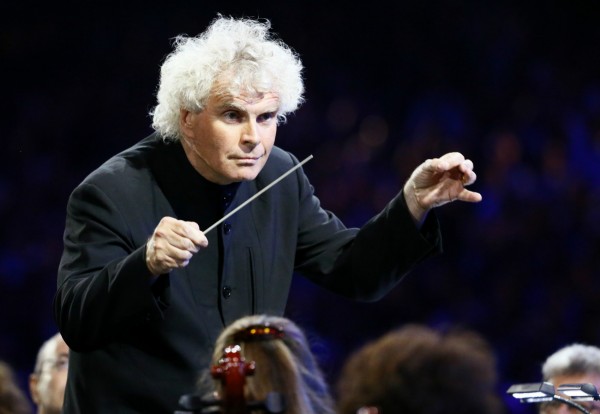
At the concert, I had the pleasure to sit next to a German couple in their 50s who attended Sir Simon’s debut concert in 1987 when they were still university students in West Berlin. They noted some musicians that performed in that very concert 31 years ago were still playing in the orchestra, including the concertmaster, and they were also surprised by how much Sir Simon’s interpretation of this work has changed. Indeed, for them, the emotions of listening to, as well as the capacity to appreciate, this tragic symphony at the height of the Cold War in 1987 in a divided Berlin were completely different to those in the modern day, where freedom and democracy widely prevailed. I can only hope that Sir Simon will return to conduct Mahler’s Sixth Symphony in Berlin again 30 years later, giving me the chance to savour and admire this symphony in a totally different light, against the backdrop of a world that would undoubtedly be ravaged by changes, turmoil and revolutions.
The concert itself was nothing surprising and it was just everything that one would expect from the Berlin Philharmonic: Perfection. Honestly, we could have stuck a dozen of windmills in front of the orchestra and the music would still have been sublime. The Berlin Philharmonic simulated near-telepathic control, in the overview of the symphony as well as in every single detail. Tastefully crafted moments came from the players with an easy panache that comes only from familiarity with the score, and each other’s playing. Sir Simon controlled his grip on the peaks and troughs by underscoring the symphony’s spacious architecture and maintaining impeccable balance. The orchestra was as impressive in restraint as in rebellion with exposed sectional and solo passages uniformly solid.
Unlike some Asian orchestras that preferred to grace a Chief Conductor’s final concert with pomp and circumstance, over-the-top ceremonies and speeches from orchestral board members and politicians, the Berlin Philharmonic’s, and indeed the Berlin’s public’s, farewell to Sir Simon was dignified, solemn and moving. All the audiences (and I do mean all) gave Sir Simon a 15-minute standing ovation, with cheers and screams of ‘Bravo’ sounding all around the Philharmonie. When Sir Simon started his tenure in Berlin 16 years ago, the Berlin public did not receive him with excitement immediately. His particular fondness for modern and new music was not popular with the traditionalists. Nevertheless, 16 years later, with his utmost enthusiasm, dedication and devotion to both classical and contemporary music, with his commitment to change lives through music-making, with his ability to underscore Berlin as the musical capital of the world, with his innovative education projects and with his sheer genius in maintaining the Berlin Philharmonic as the finest orchestra in the world, I was delighted to see that the Berliners have finally warmed to this revolutionary and visionary Englishman.
In the midst of the thunderous and deafening applause, Sir Simon made a 10-second speech addressing the Berlin public, ending with the words ‘Danke für alles’ (Thank you for everything).
Most, if not all, of the audiences responded by mouthing the same words – ‘Danke für alles’.
Thank you for everything, Sir Simon.







